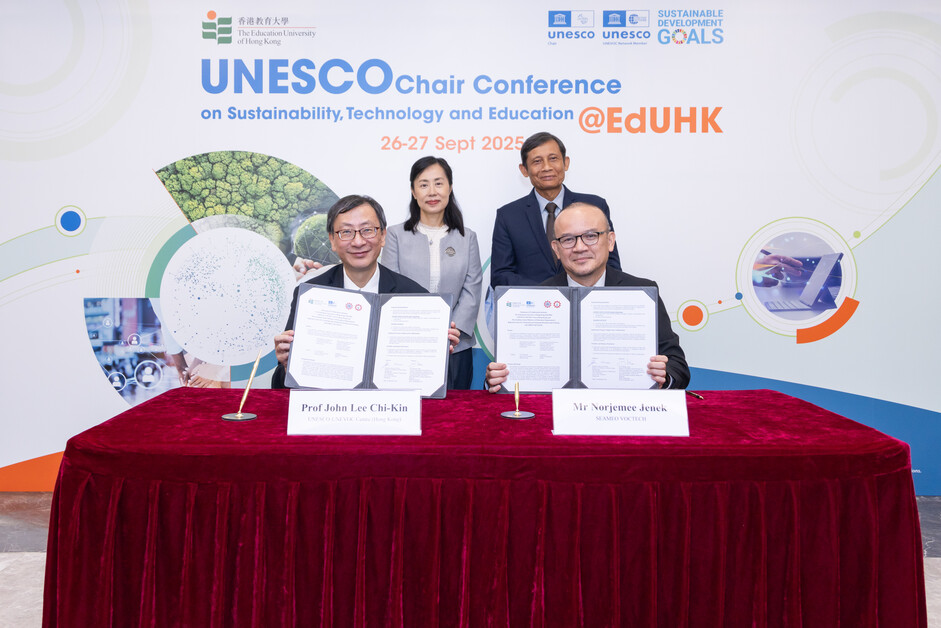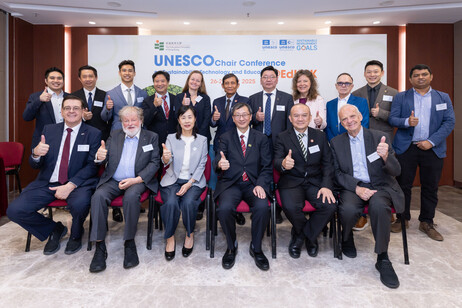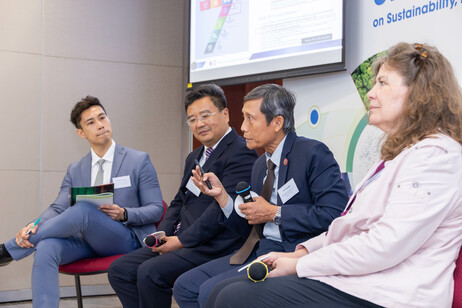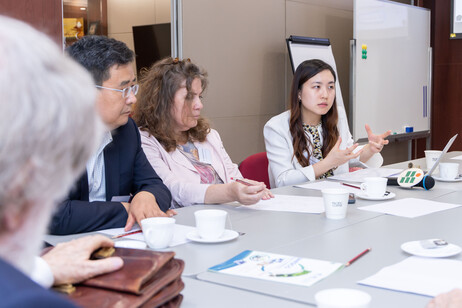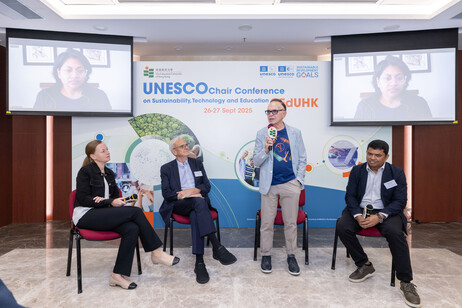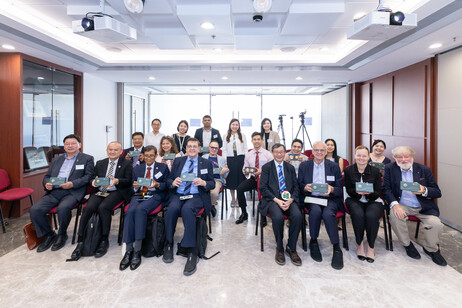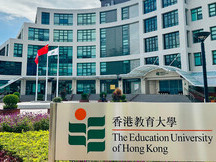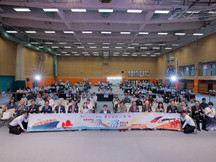EdUHK Hosts UNESCO Chair Conference on Sustainability, Technology and Education and UNEVOC Centres Meeting
The Education University of Hong Kong (EdUHK) hosted the UNESCO Chair Conference and the UNEVOC Centres Collaborative Project Meeting from 26 to 27 and 29 to 30 September 2025 at its Tai Po campus.
UNESCO Chair Conference (26-27 September 2025)
Themed ‘Building Empathetic and Sustainable Futures through Digital Transformation, Intercultural Understanding, and Professional Education,’ the two-day conference on Sustainability, Technology and Education brought together an esteemed network of UNESCO Chairs, experts, and institutional leaders from across ASEAN and Belt and Road countries, serving as a platform for collaborative dialogues addressing key topics on the intersection of sustainability, digital transformation, and education; the integration of artificial intelligence or technology in education, technical, and vocational education and training (TVET); and the cultivation of intercultural competence.
The conference also featured other insightful keynote speeches and sharing from prominent UNESCO Chairs over the globe. Their insights deepened discussions on how education systems can evolve to meet the challenges of a rapidly changing world, including:
- Professor Ochirbat Baatar from Mongolian University of Science and Technology, Mongolia
- Professor Charles Hopkins and Dr Katrin Kohl from York University, Canada
- Professor Huang Ronghuai from Beijing Normal University, China
- Professor Rupert Maclean from University of Tasmania, Australia
- Professor Michael Phillips from University of Doha for Science and Technology, Qatar
- Dr Divinia Jithoo from Durban University of Technology, South Africa
- Dr Yang Congkun from Shenzhen Polytechnic University, China
UNEVOC Centres Collaborative Project Meeting (29-30 September 2025)
The meeting was attended by Dr Mee Young Choi, Chief of Education at the UNESCO Regional Office for East Asia, Dr Anasse Bouhlal, Higher Education and TVET Regional Programme Specialist at the UNESCO Regional Office for the Gulf States and Yemen, and representatives from UNEVOC Centres across The People’s Republic of China, including Centre for Vocational Education Development (CVED), Ministry of Education; Shenzhen Polytechnic University; Shaanxi Polytechnic University; and Zhejiang Technical Institute of Economics.
The meeting fostered partnership, knowledge exchange, and collective ideas in technical and vocational education and training (TVET). It also featured three thematic talks:
- ‘UNESCO-UNEVOC Centre (Hong Kong) and its role within and beyond EdUHK’ by Professor John Lee Chi-Kin, President of EdUHK, UNESCO Chair in Regional Education Development and Director of the UNEVOC Centre (Hong Kong)
- ‘Transformative Power of AI and Data Science in Research and Educational Innovation’ by Dr Fu Hong, Associate Professor of the Department of Mathematics and Information Technology
- ‘Six Years’ Experiences in Promoting AI Literacy and Recently Applying AI in Education in Hong Kong: Unleash Students' Potential’ by Professor Kong Siu-Cheung, Research Chair Professor of E-Learning and Digital Competency, Department of Mathematics and Information Technology; Director, Artificial Intelligence and Digital Competency Education Centre
The thematic discussions on artificial intelligence and greening skills have illuminated not just the challenges we face, but more importantly, the tremendous opportunities that lie ahead for our collaborative contribution to TVET.
Members of the UNEVOC Centre (Hong Kong) at EdUHK facilitated the talks and discussion in both events and contributed valuable insights and proposing meaningful ideas for potential collaboration among the UNESCO Chair network and the UNEVOC Centres. Professor John Lee Chi-Kin, highlighted the University’s long-standing devotion to teacher and professional education as well as educational research, and its commitment to nurturing future talents who contribute constructively to sustainable social and economic development locally, nationally, regionally, and beyond.
He also remarked at his keynote address, ‘We believe that education must evolve in tandem with technological advances and global shifts, while remaining firmly grounded in ethical values and inclusive practices.’ In his closing remarks and appreciation at the UNEVOC meeting, he highlighted the strength of the UNEVOC network ‘lies not only in our individual achievements, but also in our collective ability to learn from one another, support each other, and innovate together. The partnerships we’re building today will shape the future of TVET education for countless learners and practitioners across our region and beyond.’
The two events were well-received by all the esteemed guests and speakers, particularly, Professor Michael Phillips remarked ‘I will make use of these amazing resources and stay in touch with everyone,’ expressing his appreciation for the hospitality of EdUHK. The network among EdUHK, the UNESCO chairs, and UNEVOC centres was strengthened through the meaningful interactions. Dr Kohl noted ‘Both Charles and I truly enjoyed participating and greatly appreciated the opportunity to engage with such insightful speakers and panellists.’ Professor Ochirbat Baatar shared ‘Hopefully, we can see you again, maybe in Mongolia. We will be very happy to extend a cooperation with all of you’. The positive feedback from all the guests signifies the success of both events, paving the way for future collaborations and contributing to the missions of UNESCO and UNEVOC centres.
—Ends—
